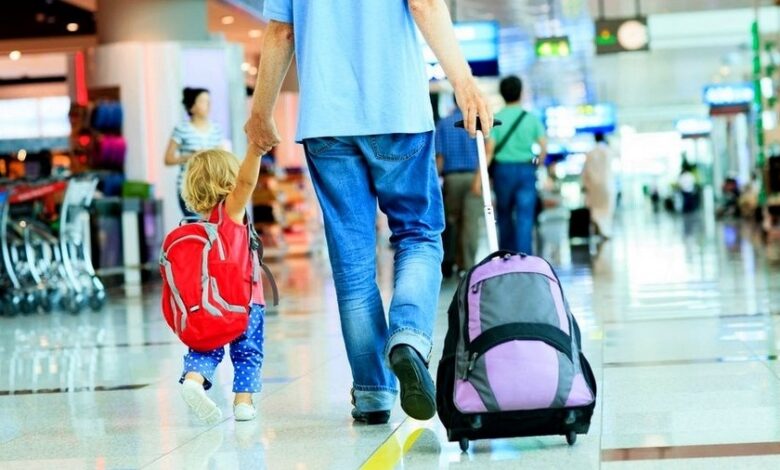The Problem of Taking Children Out During the War: Dmytro Lubinets on the Dangers and the Need for Changes in Legislation

During the war, the issue of taking children abroad became one of the urgent and painful problems. Cases when one parent takes a child away without the consent of the other, in particular, have been called “parental kidnapping.” This applies not only to the physical relocation of the child, but also to limiting the other parent’s ability to communicate with her and participate in her upbringing. All-out war has created the conditions for emergency solutions to move children for their safety, but at the same time has led to abuses that harm children’s rights. Verkhovna Rada Commissioner for Human Rights Dmytro Lubinets emphasizes on the need for a significant revision of the legislation to ensure the protection of the interests and safety of Ukrainian children in these extraordinary conditions.
Why legislation needs to be changed
Dmytro Lubinets draws attention to the problems faced by Ukrainian families due to the current rules that allow one parent to take a child away without the consent of the other. When the child is taken away by the mother, and the father, whose departure is restricted due to mobilization or other reasons, remains in Ukraine, a situation arises when he is not only unable to participate in upbringing, but also deprived of the right to communicate. After the full-scale invasion began, the government allowed one parent to remove children without the other’s notarized consent in order to quickly evacuate minors from dangerous areas. This decision is justified by the conditions of the war, but it has now become the cause of numerous family conflicts, when one parent deliberately uses this rule to prevent contact of the child with the other parent.
Removal of children to occupation zones and indoctrination
According to Lubinets, the situation is complicated by the fact that some parents with pro-Russian views take their children not only to safe countries, but also to the temporarily occupied territories of Ukraine or even to the Russian Federation. In these territories, children are deliberately integrated into the Russian environment, giving them Russian citizenship and imposing pro-Russian narratives. Anti-Ukrainian values and beliefs are being instilled in children, and due to age dependence, they are often unable to resist this. Lubinets emphasizes the fact that this is no longer just a personal family matter, but a matter of national security, since it is about the future of Ukrainian children and their identity.
The Ombudsman’s office receives appeals from minors who were taken to Russia against their will. For example, one such case ended with the return of the child to the controlled territory only after he reached the age of majority. Before that, she was forced to live under conditions of forced indoctrination for almost two years, without the opportunity to return to Ukraine.
What has already been done and what needs revision
Amendments to the legislation, adopted on March 29, 2022, made it possible for one parent to take the child out without the consent of the other, which was justified under conditions of immediate evacuation. However, now that the war has been going on for more than a year, such simplistic conditions have given rise to numerous legal and personal conflicts. Dmytro Lubinets believes that the current legislation needs urgent revision. In particular, the mandatory consent of the other parent should be reinstated or other mechanisms should be introduced to prevent abuse.
The problem is complicated by the fact that Ukraine severed diplomatic relations with Russia on February 24, 2022. This means that the Ministry of Justice, which acts as the central authority for the implementation of the Convention on Civil Legal Aspects of International Child Abduction, has no possibility to legally facilitate the return of children from Russia.
Today, the only legal way to return a child is through an appeal to the relevant authorities of Russia according to the procedure provided for by international conventions. However, due to the war, this mechanism practically does not work. The ombudsman’s office is currently processing 155 appeals to facilitate the return of children to Ukrainian-controlled territories, and 36 of them concern children whose parents had disputed civil-law relations.
Dmytro Lubinets emphasizes the need to protect children’s rights and make urgent changes to the legislation. He emphasizes that the current simplifications regarding the removal of children abroad have become a tool for the implementation of political manipulation and ideological influence that undermines the national security of Ukraine. Returning to the mandatory consent of the second parent or finding new legal mechanisms is a necessary step to protect Ukrainian children and their future in the conditions of war.





